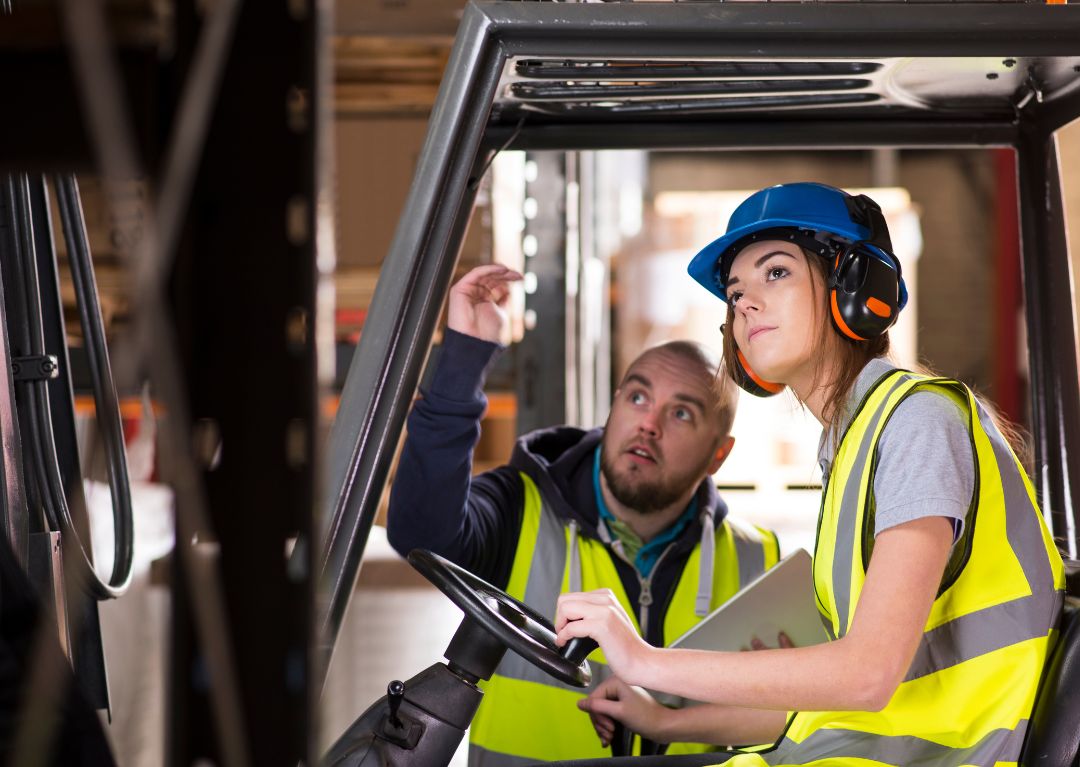Factory Standard vs. Custom Modified: A Comparative Analysis of Truck-Mounted Forklift Performance
Factory Standard vs. Custom Modified: A Comparative Analysis of Truck-Mounted Forklift Performance
.jpg)
Is your truck-mounted forklift really built to keep up with your operation—or are you adapting to its limits? Every decision you make about your equipment directly impacts your team’s efficiency, your bottom line, and your ability to meet tight timelines.
When you’re evaluating performance on the jobsite, the choice between a factory-standard forklift and a custom-modified build can feel like a high-stakes balancing act.
Reliability, serviceability, and adaptability all come into play—but so does cost, downtime, and the reality of everyday demands. Some operations need a straightforward solution that gets the job done without added complexity, while others call for tailored modifications that push performance even further.
The ability to understand the trade-offs between these two options can give you a sharper edge when it comes to selecting equipment that’s truly built for your work.
That’s why, in this article, we’ll break down the real-world differences between factory-standard and custom-modified truck-mounted forklifts—and help you weigh which one fits your operation best.

Factory Builds: Reliable and Ready for General Use
Factory models have a strong reputation for a reason. They’re designed to offer a balance between reliability, versatility, and ease of maintenance—all without needing extra modifications.
If you're considering a standard forklift, here’s what you can typically expect from the build itself.
What Factory Models Typically Include
Most factory-standard truck-mounted forklifts are engineered for a wide range of general use applications.
You can typically count on:
- Balanced load capacity for versatile applications
- Standard all-terrain capabilities
- Streamlined design for ease of transport and use
- Uniform parts for simplified maintenance and quick repairs
This consistency allows for predictable performance, especially when working across various sites with standard load and terrain requirements.
When a Standard Build Works Best
While factory builds offer a lot of strengths, they’re not right for every situation.
A standard forklift tends to deliver the best results when:
- Your jobs involve consistent load types and predictable terrain
- Your fleet demands fast turnaround with minimal downtime
- Your operation is highly budget-conscious, and ROI tracking is key
If your workflow doesn’t vary much day-to-day, a factory model keeps things simple, dependable, and cost-effective.
Situations Where Customization Pays Off
A custom build isn’t about luxury—it’s about necessity when certain conditions apply.
Custom forklifts tend to offer strong returns in situations like:
- Repeated exposure to extreme weather conditions or rough terrain
- Frequent handling of oversized, awkward, or delicate materials
- Jobs requiring quick load-unload cycles and high operational efficiency
If the challenges you face aren’t “one-size-fits-all,” custom solutions are worth a serious look.

Customized Forklifts: Performance Built for Your Jobsite
When your operation starts pushing the limits of what a factory model can offer, customization quickly becomes a smart conversation. Custom modifications allow you to fine-tune performance to match the real-world demands your team faces every day.
Common Modifications to Consider
Depending on your needs, several upgrades can be made to a standard forklift to better fit your jobsite challenges.
Some of the most impactful modifications include:
- Reinforced lifting arms and chassis for handling heavier loads
- Hydraulic system upgrades for smoother, stronger lifting action
- Specialized tires or suspension designed for rough or uneven ground
- Operator cab enhancements to improve comfort, visibility, and safety
Each of these modifications aims to solve a very real limitation of a factory model, making daily operations more efficient and reliable.
.jpg)
Factory vs. Custom Performance
Choosing between a factory or custom forklift often comes down to understanding the performance trade-offs. Let’s break it down by the features that matter most in day-to-day use.
Maneuverability and Terrain Handling
- Factory: Standardized features that perform well on most job sites
- Custom: Tuned capabilities that enhance navigation and control in tough or uneven environments
If your sites are straightforward, a factory model works fine. For more rugged demands, customization provides a noticeable edge.
Lift Strength and Stability
- Factory: Meets general industry safety and performance standards
- Custom: Reinforcements and hydraulic upgrades allow for heavier, specialized, or more complex load handling
When you frequently push load limits, custom strength enhancements keep operations safer and smoother.
Maintenance and Service Life
- Factory: Easier sourcing of parts, streamlined repairs, and fewer compatibility concerns
- Custom: May require specialized parts and service expertise, but modifications can extend operational life under extreme conditions
If ease of maintenance is your top priority, factory models win out. If long-term ruggedness matters more, customized options deliver.
Cost and Return on Investment
- Factory: Lower upfront cost, steady performance in predictable environments
- Custom: Higher initial investment, often recouped through reduced downtime and better jobsite efficiency
Thinking long-term? A higher upfront spend on customization often translates into bigger operational savings down the line.
Choosing the Right Fit for Your Operation
Knowing the strengths of both factory and custom options is one thing—but making the right call for your operation is another. Here are some practical questions to guide you:
Questions That Help Guide the Decision
- Is your terrain consistent, or does it frequently present unique challenges?
- Are you regularly pushing the maximum load capacities of your current equipment?
- Are your operators slowed down by forklift limitations or uncomfortable conditions?
- Would better performance translate directly to faster job completion and lower costs?
The answers to these questions can point you clearly toward either a factory standard or a custom-modified build.
Find the Right Princeton Forklift Fit with Beamer’s Piggyback
When it comes to choosing between a factory-standard or custom-modified truck-mounted forklift, there’s no one-size-fits-all answer—only what fits your operation best. The right equipment should work with you, not against you, helping your team stay efficient, safe, and ahead of the demands of every jobsite.
At Beamer’s Piggyback, we know what it takes to match equipment to real-world needs. Whether you’re leaning toward the dependable simplicity of a factory build or considering a custom solution to meet tougher challenges, our team is ready to help you find the right fit.
Let’s make sure your forklift investment drives the performance you need—today and in the long haul. Click here to reach out to us now!
Satisfied with the Beamers Piggyback difference? Leave us a quick review on Google here!
Don't miss out on the best tips! Follow Beamers Piggyback on Facebook and Instagram for more free semi-truck and forklift maintenance tips!
